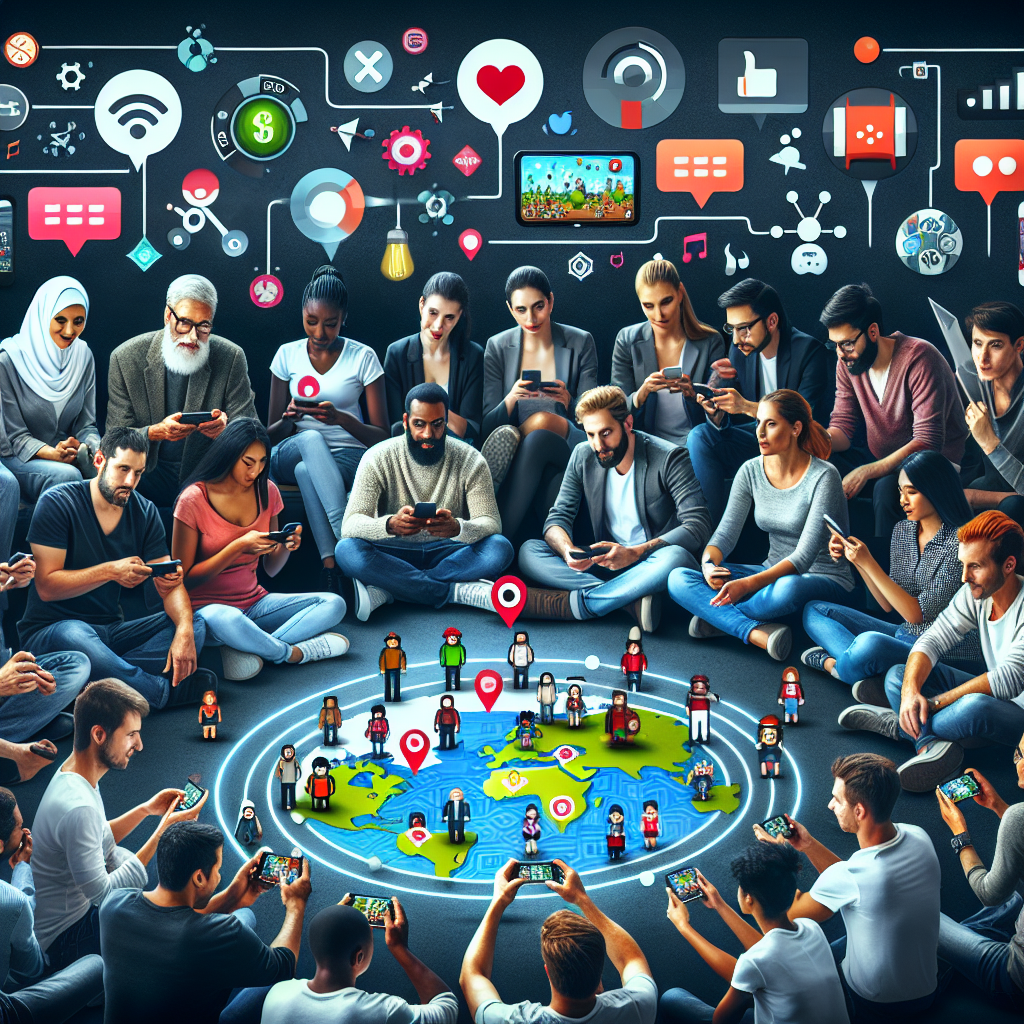Mobile gaming has evolved tremendously from its simplistic roots in games like Tetris and Snake. With the relentless upgradation in mobile technology, these games have become a platform for immersive experience and fascinating social interactions. Many of today’s mobile games incorporate or even urge users to take part in social components, where the interactions weave a unique network fabric. This essay explores the impacts of mobile gaming on social interactions.
The Growth of Mobile Gaming
There are now an estimated 2.4 billion mobile gamers worldwide. The worldwide mobile games market is projected to generate $77.2 billion this year, up to 20% year over year. Mobile gaming’s appeal extends beyond traditional boundaries, with players spanning all ages, genders, and economic backgrounds. The industry transforms public spaces into interactive game boards, boosting social participation on a large scale.
Impact on Social Everyday Life
Games such as Pokémon Go, Among Us, and Clash of Clans have burgeoned to the forefront of popular culture, often requiring or advocating for interaction with other players. These games give birth to an entirely new social scene, facilitating player-to-player interactions and creating a sense of community. Augmented Reality (AR) games like Pokémon Go encourage players to leave their homes, explore their surroundings, and interact with strangers who also engage in the game, fostering a unique, shared experience as players gather at communal points of interest.
Negative Impact on Social Interactions
Contrarily, excessive gaming can potentially worsen social interactions or result in addiction. Many players get too immersed in the virtual world, often at the expense of face-to-face relationships. Over time, this can lead to decreased social skills and isolation. Studies have shown parallels between excessive mobile gaming and traits similar to those linked with substance abuse disorders, such as withdrawal and neglecting other aspects of life.
Mobile Gaming as Social Platforms
In many ways, games are becoming not just a pastime but a platform. They are a place to directly meet and socialize with friends or to make new ones. With chat systems, shared objectives, and team battles, gamers cooperate, strategize, compete, and engage in conversations. They’re not alone, even if they physically are. These gaming platforms also propose a new level of interactivity, especially amid pandemic isolation, when traditional in-person social interactions are limited.
A New Era of Social Interactions
Mobile gaming is immensely impacting the way we socially interact, integrating the virtual and physical world to create a novel social landscape. While caution is warranted to prevent mobile gaming from becoming a debilitating addiction, its potential to foster community, improve coordination, and strengthen team-building skills cannot be neglected. In the right balance, mobile gaming can serve as an enabler of joyful, meaningful, and recurring social interactions.
Conclusion
In conclusion, we find ourselves in an era where mobile gaming is not just play, but a significant sociocultural phenomenon. It is transforming social interactions, pushing boundaries on the conventional definition and creating an interactive space for players beyond geographic constraints. Like any innovative technology, it brings opportunities and challenges. However, if well-harnessed, mobile gaming can foster significant positive social impact. At the nexus of technology, entertainment, and social connection, the future of mobile gaming is indeed bright, inviting, and full of potential.
Frequently Asked Questions (FAQs)
1. Is mobile gaming always sociable?
Not necessarily. It depends on the design and nature of the game. Some games are strictly single-player, while others encourage or even need social interactions.
2. Can mobile games have negative impacts?
Absolutely, like any technological tool, excessive or unhealthy use can result in negative effects such as isolation, addiction, and decreased social skills.
3. Does mobile gaming boost any social skills?
Yes, multiplayer games often require communication, cooperation, and teamwork, which can improve social skills like leadership, empathy, and negotiation.
4. Can mobile gaming replace traditional social interactions?
While mobile gaming creates a unique interaction platform, it is not designed to replace traditional face-to-face interactions but to supplement them, especially in moments when it’s difficult to meet physically.
5. What is the future of mobile gaming?
Mobile gaming continues to grow, with advancements in technology promising more immersive experiences and increased social components. The mobile gaming industry is set to transform social interactions further, leading to even more fascinating future possibilities.

